Social media has become a powerful tool for advocacy, and TikTok is leading the way in changing perceptions about disability. With its short, engaging videos, the platform allows disabled creators to share their experiences, challenge stereotypes, and push for real-world change.
What makes TikTok different from traditional advocacy platforms is its ability to amplify voices quickly and reach millions in a matter of hours. Unlike long articles or formal campaigns, short-form videos are easy to consume, highly shareable, and visually impactful, making them perfect for raising awareness.
Through personal storytelling, education, community building, and activism, disabled TikTokers are reshaping how society views disability. This article explores how TikTok is helping drive real change, the challenges advocates face, and the future of disability representation on the platform.
The Rise of Disability Advocacy on TikTok
TikTok’s format is perfect for advocacy because it allows users to express themselves creatively while reaching a global audience. For disabled creators, this means breaking barriers and sharing their lived experiences in ways that were never possible before.
Visibility Like Never Before
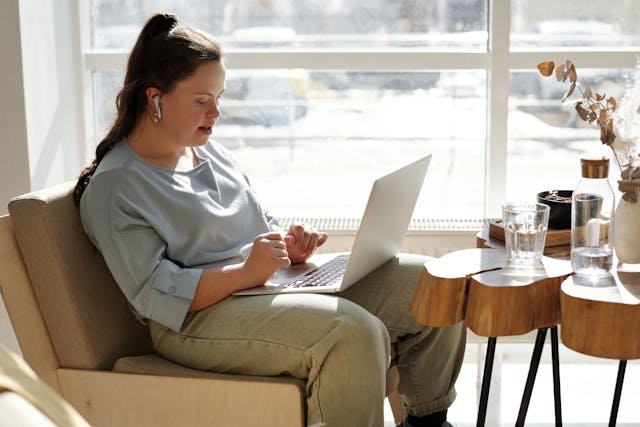
Before TikTok, most disability advocacy relied on long-form content like blogs, documentaries, or news reports—all of which required audiences to invest time to understand the message. TikTok changed that by making advocacy instant, visual, and engaging.
With just a 15 to 60-second video, creators can show the realities of living with a disability, demonstrate how prosthetics work, or educate about accessibility issues. This has led to wider acceptance, stronger representation, and a growing movement of digital activism.
Challenging Stereotypes Through Everyday Life
One of the biggest strengths of disability TikTok is its ability to normalize disability. Instead of only discussing struggles or medical challenges, creators share daily activities, hobbies, careers, and relationships, proving that disabled individuals lead full, dynamic lives just like everyone else.
These videos break stereotypes by showing people with disabilities dancing, traveling, cooking, working, and participating in sports. They send a clear message: disability is not a limitation—it’s a different way of experiencing life.
A Platform for Immediate Impact
Unlike traditional advocacy, which often takes years to bring about change, TikTok allows immediate interaction and response. A viral video about accessibility issues in public spaces can lead to businesses making changes. A heartfelt video about employment struggles can push companies to rethink hiring practices.
TikTok has allowed disability awareness to move from small discussions to global conversations, influencing how people think, behave, and engage with accessibility issues in real life.
Personal Storytelling: Changing Perceptions One Video at a Time
One of the most powerful aspects of TikTok’s disability movement is the use of personal stories. These stories humanize disabilities, remove misconceptions, and create emotional connections with viewers.
Sharing Lived Experiences
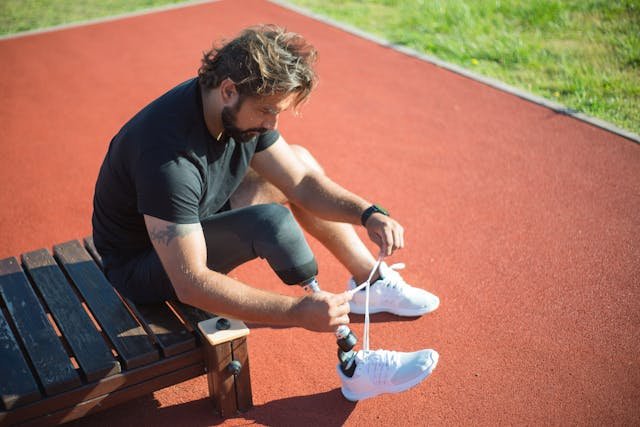
People tend to understand an issue better when they hear it from someone directly affected by it. TikTok has given disabled individuals a platform to speak for themselves, rather than relying on media or charities to tell their stories.
Whether it’s an amputee showing their prosthetic limb, a wheelchair user navigating inaccessible spaces, or someone with an invisible disability explaining their condition, these firsthand accounts build awareness in ways that textbooks and reports never could.
Empowering Others with Similar Conditions
Beyond educating the general public, TikTok serves as a support system for those with disabilities. Many viewers find comfort, validation, and encouragement when they see someone with a similar condition thriving.
A teenager who recently lost a limb might feel inspired by a creator who shares their own journey of adapting to a prosthetic. Someone struggling with an invisible disability might find relief in learning that others face the same challenges.
Breaking the Culture of Pity
For decades, disability representation in media focused on pity and tragedy. TikTok is shifting this narrative by celebrating disabled individuals for their abilities, resilience, and unique perspectives.
Instead of framing disability as something to be “overcome,” TikTok creators highlight the value of inclusion, the joy in adaptive living, and the innovation of assistive technology. This reframes how society sees disability—not as a weakness, but as a different way of moving through the world.
Educating the Public: Busting Myths and Spreading Awareness
Beyond personal stories, TikTok has become a hub for educational content, where disabled creators debunk myths, share facts, and advocate for better policies.
Correcting Misinformation About Disabilities
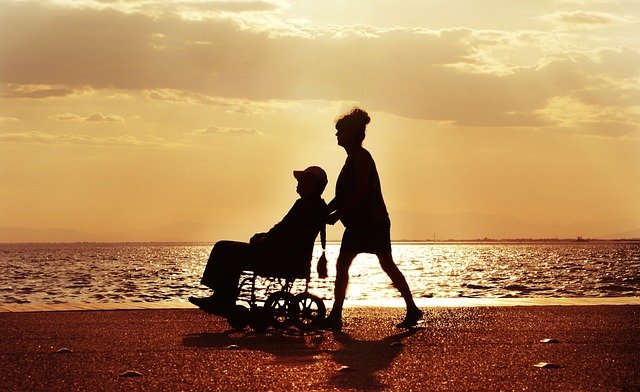
Many people have outdated, inaccurate, or simply false ideas about disabilities. TikTok videos help educate the masses by explaining:
- Not all disabilities are visible—chronic illnesses, neurological conditions, and mental health disorders also count.
- Prosthetics are not one-size-fits-all—different lifestyles require different types of assistive devices.
- Wheelchair users are not “confined”—they are enabled by their mobility aids to navigate the world independently.
By spreading factual, first-person information, these videos help replace ignorance with understanding.
Highlighting the Importance of Accessibility
Many disability TikTokers use their platforms to point out barriers that able-bodied people may never think about, such as:
- Stores without ramps or elevators
- Workplaces that don’t accommodate assistive technology
- Lack of captions on videos, making content inaccessible for deaf users
These eye-opening insights often lead to real-world change, as businesses and institutions become more aware of the need for inclusivity.
Providing Practical Guidance
In addition to awareness, many disabled TikTokers share practical information about using prosthetics, navigating the healthcare system, and advocating for legal rights.
This knowledge is invaluable, especially for newly disabled individuals who may not know where to turn. TikTok has become an unofficial guidebook for adapting to life with a disability.
Building a Strong Online Disability Community
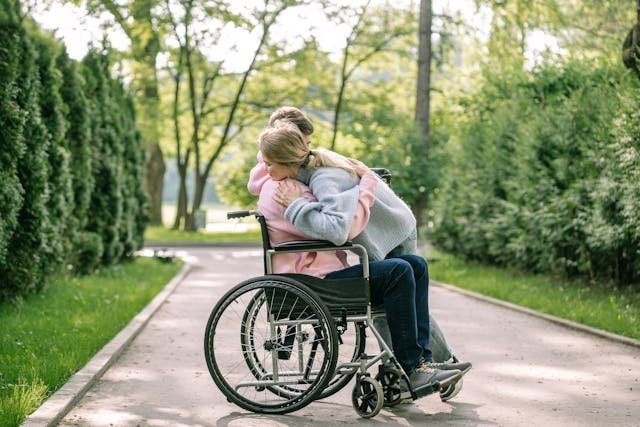
One of TikTok’s greatest strengths is its ability to bring people together. Disability advocates have used the platform to create safe spaces, connect with allies, and support one another.
A Place for Disabled Creators to Connect
Many disabled individuals feel isolated in their daily lives, especially if they live in areas where disability representation is lacking. TikTok has allowed people with similar experiences to find one another, share stories, and exchange advice.
Encouraging Allyship and Inclusion
TikTok also provides an opportunity for non-disabled allies to learn and take action. Many creators offer ways for allies to support disability rights, amplify disabled voices, and advocate for inclusion in their workplaces and communities.
Holding Brands and Companies Accountable
Because TikTok spreads messages so quickly, companies can no longer ignore accessibility issues. Many brands have been called out for lacking disability representation and have since improved their marketing, hiring, and services.
The Future of Disability Advocacy on TikTok
As TikTok continues to grow, disability advocacy on the platform will only become stronger, more innovative, and more impactful.
More Representation in Mainstream Media
With TikTok giving disabled creators a bigger platform, more people with disabilities will be seen in film, TV, and advertising—not just as inspirational figures, but as everyday individuals.
Advancements in Assistive Technology Awareness
TikTok will continue to be a key space for promoting new prosthetics, wheelchairs, and accessibility tools, making life-changing technology more widely known and available.
A Global Shift Toward Accessibility
As more conversations about inclusion and accessibility happen online, real-world policies will have to follow. Governments, schools, and workplaces will face more pressure to implement disability-friendly policies.
Overcoming Challenges: The Struggles of Disability Advocacy on TikTok
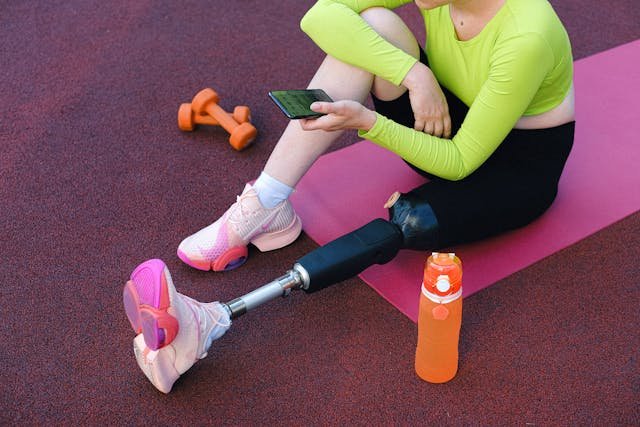
While TikTok has proven to be a powerful tool for disability advocacy, it is not without challenges. Many disabled creators face barriers to visibility, online harassment, and algorithm bias, which can make it harder for their messages to reach the audiences who need them most.
Algorithm Bias and Reduced Visibility
TikTok’s algorithm determines which videos get promoted and shown to wider audiences. Unfortunately, many disabled creators have reported issues with their content being suppressed or reaching fewer viewers than similar non-disability-related content.
There have even been claims that TikTok automatically limits the reach of videos from disabled users, mistakenly assuming that their content is not “engaging” or that it needs to be hidden to “protect” them from potential bullying. This kind of digital censorship prevents important conversations about disability from gaining the attention they deserve.
Despite this, many creators continue to post consistently, find ways to work around algorithmic challenges, and encourage their followers to actively engage with their content to boost visibility.
Online Harassment and Ableism
Like many social media platforms, TikTok is not free from trolls and ableist comments. Disabled creators often experience:
- Negative stereotypes about their abilities or intelligence.
- Insensitive comments about their prosthetics, mobility aids, or appearance.
- Harmful “inspiration porn” mindsets, where viewers pity them rather than treat them as equals.
Some creators have even had their disabilities mocked or used as trends for able-bodied people to gain views. For example, certain viral challenges have included non-disabled individuals pretending to be disabled, which further spreads misinformation and reinforces harmful narratives.
Despite these obstacles, many disability advocates on TikTok stand their ground, educate their audiences, and turn hate into opportunities for awareness. Their resilience helps to create a safer and more inclusive space for future creators.
Monetization and Financial Barriers
While some TikTok creators earn money through sponsorships and brand deals, many disabled creators struggle to get the same opportunities as their non-disabled peers.
Many companies still hesitate to work with disabled influencers because they do not see disability advocacy as a profitable niche. This limits financial growth for creators who put significant time and effort into their content.
Advocates are working to change this by calling for equal sponsorship opportunities, pushing brands to include disability representation in their campaigns, and creating independent revenue streams through Patreon, speaking engagements, and merchandise sales.
The Role of Brands and Businesses in Supporting Disability Advocacy

TikTok’s disability movement has also put pressure on businesses and brands to be more inclusive in their marketing, hiring, and accessibility efforts. Some companies have embraced the challenge, while others still lag behind.
Including Disabled Influencers in Marketing Campaigns
One of the biggest wins from TikTok’s disability advocacy is the rise of disabled influencers in mainstream media and advertising. More brands are now:
- Featuring disabled models and influencers in their promotional campaigns.
- Creating adaptive fashion and assistive technology and using real disabled individuals to showcase them.
- Partnering with disability advocates to promote accessibility awareness in their industry.
However, there is still work to be done. Some brands use disability as a one-time marketing gimmick, rather than committing to long-term inclusivity. Disability advocacy should not just be a social media trend—it needs to be integrated into real-world business practices.
Improving Workplace Accessibility
Many disabled TikTok creators also use the platform to highlight the challenges of employment discrimination and workplace accessibility. Some common issues they discuss include:
- Lack of accommodations for disabled employees in office spaces.
- Unfair hiring practices, where companies assume disabled candidates are “too much work.”
- Limited career growth opportunities for disabled individuals due to outdated biases.
By raising awareness on TikTok, these advocates are forcing businesses to rethink how they approach hiring and employee support. As a result, some companies have started offering more flexible work options, improving office accessibility, and actively seeking out disabled talent.
Supporting Disability-Owned Businesses
Another positive impact of TikTok advocacy is the rise of disabled entrepreneurs and business owners. Many disabled creators launch their own brands, sell adaptive products, or offer disability-focused services.
Some of these businesses include:
- Adaptive clothing brands that make dressing easier for people with mobility limitations.
- Assistive technology companies that develop innovative prosthetics, wheelchairs, and smart devices.
- Disability-centered consulting firms that help other businesses improve accessibility.
By using TikTok to promote their businesses, disabled entrepreneurs are proving that disability does not limit success—it can be a driving force for innovation.
How Non-Disabled Allies Can Support Disability Advocacy on TikTok
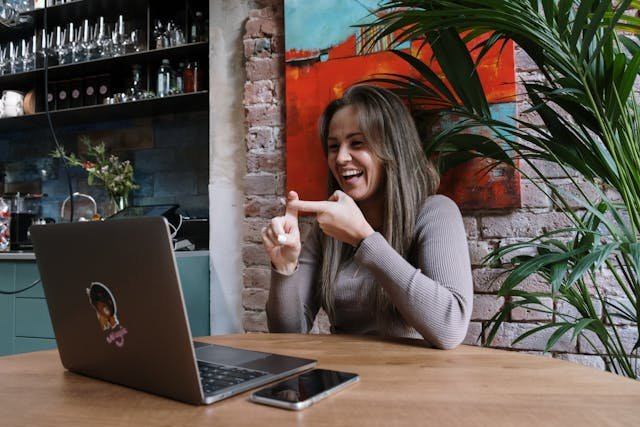
While disabled individuals are leading the advocacy movement, non-disabled allies also play an important role in amplifying these voices and pushing for change.
Engaging with and Sharing Disability Content
One of the easiest ways for allies to support disabled TikTok creators is by watching, liking, sharing, and commenting on their videos. Increased engagement helps boost these videos in the TikTok algorithm, ensuring they reach more people.
Instead of waiting for disability-related content to show up on their feed, allies can actively:
- Follow disabled creators and interact with their content regularly.
- Share educational videos with friends, family, and colleagues to spread awareness.
- Encourage businesses and influencers to collaborate with disabled creators.
Listening and Learning from Disabled Voices
Many well-meaning allies talk about disability issues without involving disabled individuals. The best way to advocate is by listening to the voices of those with lived experience and letting them lead the conversation.
This means:
- Avoiding assumptions about what disabled people need or want.
- Respecting individual experiences, as no two disabilities are the same.
- Supporting policy changes that promote accessibility and inclusion.
Speaking Up in Everyday Life
While TikTok is a great place for advocacy, real change needs to happen in everyday interactions. Allies should:
- Call out ableism when they see it, whether in the workplace, social settings, or online.
- Advocate for accessibility in their schools, offices, and communities.
- Encourage disabled representation in media, advertising, and leadership roles.
The more people actively push for inclusion, the faster society will change.
What’s Next for Disability Advocacy on TikTok?
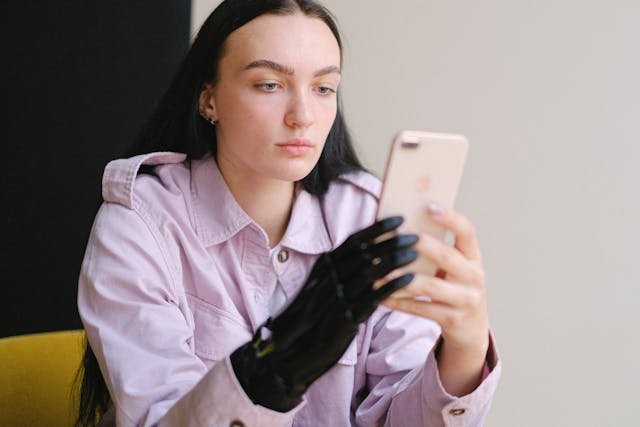
As TikTok continues to grow, so will the influence of disability activists on the platform. The next few years will likely bring:
More Collaboration Between Advocates and Large Organizations
Disability influencers will likely partner with brands, government organizations, and nonprofits to create campaigns focused on:
- Employment rights and workplace inclusion.
- Healthcare accessibility and insurance coverage.
- Assistive technology and innovation.
These partnerships will help bring disability advocacy into the mainstream, making accessibility a global priority.
Advancements in AI and Assistive TikTok Features
As technology improves, TikTok will likely introduce better accessibility features, including:
- AI-powered automatic captions that are more accurate for deaf users.
- Better text-to-speech options for visually impaired users.
- Customizable video controls for those with motor disabilities.
A Permanent Shift in How Society Views Disability
The biggest long-term impact of TikTok’s disability movement will be a fundamental shift in how disability is represented in media, workplaces, and daily life.
As younger generations grow up seeing positive, empowered portrayals of disabled individuals, the world will become more inclusive, more accessible, and more accepting.
Final Thoughts: The Power of Short Videos in Driving Big Change
TikTok has revolutionized disability advocacy, proving that short videos can have a massive impact on societal perceptions and real-world policies.
By sharing personal stories, educating the public, building community, and pushing for legal and social changes, disabled creators are transforming how the world sees disability—one video at a time.
The future of disability advocacy is digital, global, and unstoppable—and TikTok is at the heart of it.



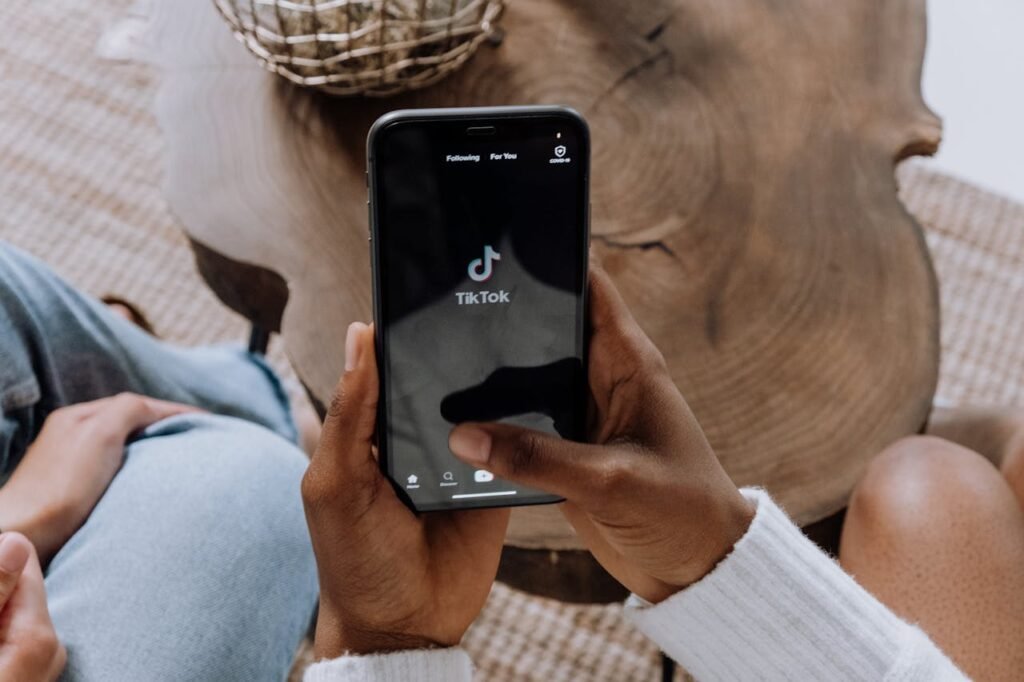
Pingback: From Stigma to Style: How Digital Disruption is Transforming Medical Devices into Empowering Fashion Statements (22028911) – CREATIVE CONVERSATION